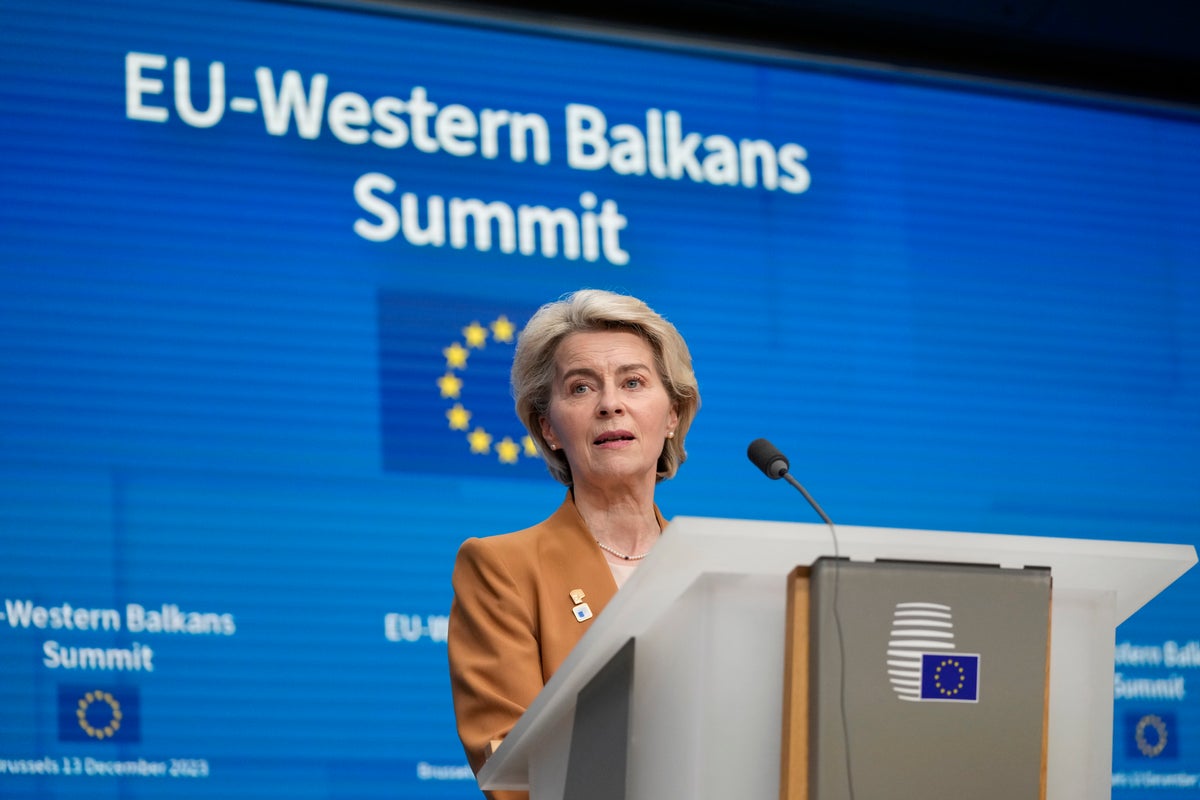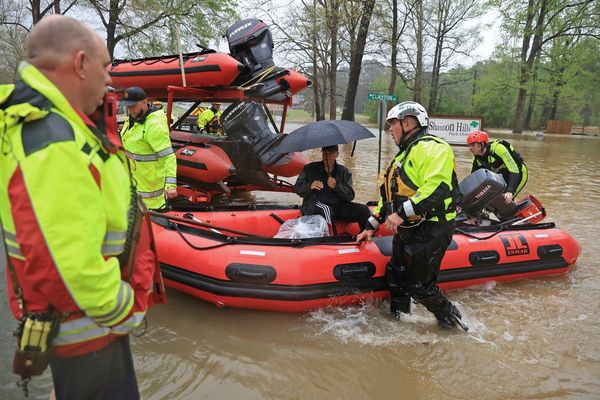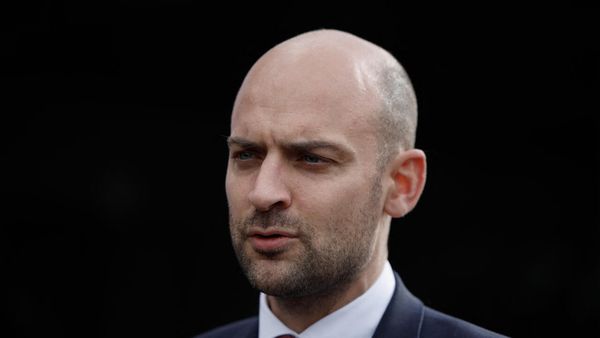
A top European Union official has endorsed an agreement that would see Albania host thousands of migrants picked up at sea and transferred there by the Italian authorities, just as the Albanian Constitutional Court delayed the deal so legal concerns can be addressed.
In a letter to EU leaders, meeting Thursday in Brussels, European Commission President Ursula von der Leyen praised “important initiatives” on restricting migration by some of the bloc’s 27 member countries, including “the operational arrangement between Italy and Albania.”
“This serves as an example of out-of-the-box thinking, based on fair sharing of responsibilities with third countries in line with obligations under EU and international law,” von der Leyen wrote, in a letter outlining the progress made on halting the arrival of people without authorization.
Under the five-year deal announced last month, Albania would shelter up to 36,000 migrants for a year, or about 3,000 a month, who try to reach Italy without proper documentation, mostly in perilous sea voyages.
It would involve people rescued or “intercepted” by the Italian navy in international waters. Those migrants picked up in Italy’s territorial waters would retain their right under international and EU law to apply for asylum in Italy and also have their claims processed there.
Albania would house the migrants at two facilities while Italy fast-tracks their asylum requests. Italy would remain legally responsible for the migrants throughout the process. It would welcome them in should they be granted international protection or organize their deportation from Albania if refused.
On Wednesday, Albania’s Constitutional Court stopped lawmakers, at least temporarily, from ratifying the deal. The court’s chief judge said a public hearing would be held on Jan. 18 to determine whether the agreement violates Albania’s constitution.
The decision came after Albania’s opposition petitioned the court, arguing that housing migrants this way would deny them “any right the Albanian Constitution offers individuals,” and would break international law.
Separately, the commissioner for human rights at the Council of Europe – a human rights watchdog that is not part of the EU – also raised concerns on Thursday about the Italy-Albania agreement.
“The extra-territorial detention of refugees, asylum seekers and migrants as foreseen in the memorandum could deprive them of crucial safeguards,” said a report, compiled after a June visit to Italy by Human Rights Commissioner Dunja Mijatiovic.
The report noted that the deal is “characterized by many legal ambiguities. In practice, the lack of legal certainty will likely undermine crucial human rights safeguards and accountability for violations.”
In her letter, von der Leyen noted that the commission has provided 473 million euros ($516 million) to help strengthen the EU's external borders, notably on boosting land border surveillance, including electronic monitoring equipment and new computer systems.
“Similar investments are needed for border surveillance equipment for sea borders as pre-frontier aerial surveillance is crucial to prevent irregular arrivals and loss of life at sea,” she wrote. She noted that the commission is “ready to continue ensuring stable financing for these important initiatives.”
After well over a million migrants entered the EU in 2015, the EU clinched a deal with Turkey, involving billions of euros in assistance for Syrian refugees on its territory, fast-track membership talks and visa incentives, to persuade President Recep Tayyip Erdogan to prevent people from leaving for Europe.
Despite the costs and ultimate breakdown of the deal, it did quickly reduce migrant arrivals from Turkey to a virtual standstill. Encouraged by the results, the EU has continued to work on similar arrangements with other countries that migrants leave or transit to get to Europe.
“EU agencies have continued expanding their footprint in North Africa, building up relationships with Tunisia, Egypt and Morocco,” von der Leyen said in her letter.
She told the leaders that a senior EU official was dispatched to Mauritania, Senegal, Ivory Coast, Gambia and Guinea, in part to remind them of “how visa policy can discourage irregular movements” of people, after migrant arrivals to the Italian island of Lampedusa rose in recent months.
Von der Leyen also said that the commission has continued to “multiply and deepen our migration partnerships” throughout 2023, including with Bangladesh, Iraq, Nigeria and Pakistan.







